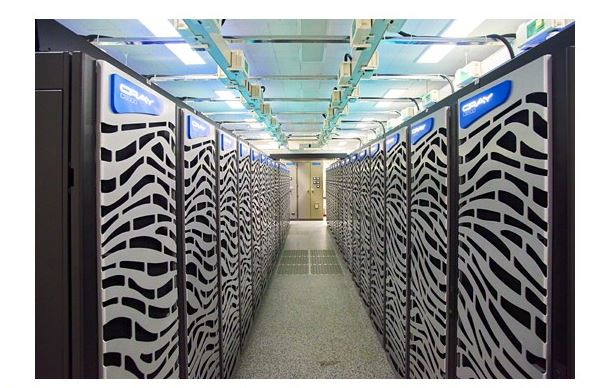Supercomputer 6, “possibly exempted from preliminary feasibility study”
최나은 2021-06-04 View. 65,412With the government’s willingness to introduce and develop supercomputers, it has been confirmed that the introduction of Supercomputer 6 is likely to be exempted from a preliminary feasibility study. The Ministry of Science and ICT announced on the 28th that it would achieve world 5th in computing power by 2030 through the national high-performance computing innovation strategy. Following the introduction of Supercomputer 6 in 2023 and 7 in 2028, the plan is to develop exascale (100 quintillion times per second) supercomputer by 30 years.

According to KISTI, the capacity of supercomputer 6 will be about 500 Petaflops (a Petaflop is 1000 trillion operations per second). supercomputer 5, Nurion, cost 25.7 Petaflops, with a budget of 45 million US$. Therefore, it is expected that the budget for supercomputer 6 with a capacity of 500 Peta, will far exceed the amount, exempted from the preliminary feasibility study.
Currently, as for the domestic supercomputer, KISTI is operating supercomputer 5 'Nurion'. In 2018, when introduced, it was ranked 11th, but now it has been pushed to the top 20th, and the introduction of supercomputer 6 is urgently needed. In particular, there was 8 years gap between supercomputer 4 and 5, the competitiveness of domestic supercomputers is getting weaker.
KISTI said "Usually, supercomputers were introduced every five years, but the introduction of supercomputer 5 was delayed. To speed up the introduction of supercomputer 6, the exemption of preliminary feasibility study should be finalized at the end of this year and the budget should be reflected in the 2023 year. And, there will an admin. process such as bid, contract including assembly, so we will be able to assembling around the end of 2023.”
The top supercomputer list announced in November last year, is occupied by advanced countries in science and technology such as Japan, the United States, and China. In particular, Japan ranked 1st in the world with its self-developed Fugaku supercomputer (442 Petaflops). It is also noteworthy that Germany entered the 7th and Saudi Arabia ranked 10th.
Countries with top supercomputer performance are accelerating development of Exascale computer. The importance of data in artificial intelligence, autonomous vehicles, space, nuclear fusion, and biotechnology, is growing, and it seems that they are rushing to develop their own supercomputer.
Korean government has decided to develop develop a 20 Exaflops supercomputer by 30 years with its own technology of CPU, memory and storage. Although there is no development experience so far, experts say that there is a high possibility because Korea has core technologies in semiconductors.
KISTI said, "It will be possible if industry-university-research institutes form a consortium to develop it." "In particular, Korea has strengths in core technologies such as memory semiconductors, so we think it will be possible by 2030."
Attached files(1)

 Delete Article!
Delete Article!